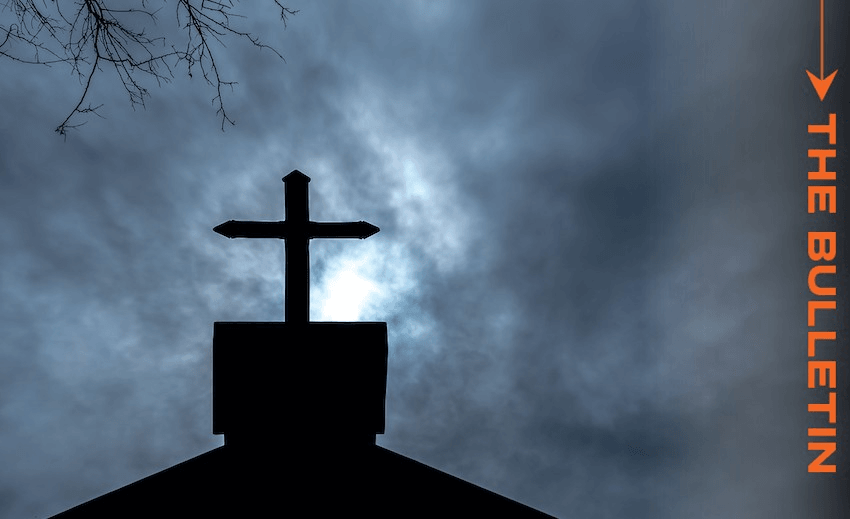The report comes to about 3,000 pages and contains dozens of heartbreaking stories, writes Stewart Sowman-Lund in this extract from The Bulletin.
To receive The Bulletin in full each weekday, sign up here.
At 4pm today, as parliament gathers, the final report from the Royal Commission of Inquiry into Abuse in Care will be made public. In Christopher Luxon’s words, it has been the “largest and most complex public inquiry ever held in New Zealand”. It’s taken nearly six years to reach this point, but the findings are extensive. The report comes to about 3,000 pages (which, when printed, weighs roughly 14 kilograms) and contains dozens of heartbreaking stories and hopeful recommendations for the future. Aaron Smale has covered the inquiry in impressive detail and writes for Newsroom that while the report is being released today, the full implications of it will not be sufficiently digested in the hours or even days subsequent.
But, there will be some immediate questions that need answers – such as around compensation and culpability. We already know the prime minister will lead a formal government apology to the hundreds of thousands of victims in November this year. We’ll delve into some of the outstanding questions tomorrow morning once we’ve had a chance to see the report. For now, here is what we know so far.
A ‘chance to confront our history’
Formally established in February 2018 by the last Labour government, the Royal Commission was initially expected only to examine circumstances between 1950 and 1999 where the state directly ran institutions involved in the care of children. “This is a chance to confront our history and make sure we don’t make the same mistakes again,” said then-prime minister Jacinda Ardern. In November of that year, the terms of reference were extended to include faith-based institutions. It’s estimated that as many as 250,000 children may have been abused, thus the name of The Spinoff’s series exploring the ramifications of the inquiry: The Quarter Million. In 2022, The Spinoff’s Reweti Kohere launched that series with a comprehensive feature on why the inquiry is so critical, and why New Zealand’s history is tarnished by the actions of those charged with looking after our most vulnerable. It’s a tough read, as it should be.
At the time that feature was published, shortly before public hearings concluded, about 2,200 people had already shared their experiences through private sessions, written accounts and witness statements. More than a million documents had been analysed. It’s understandable, then, why the release of today’s report has been delayed several times – though the Royal Commission has already made some recommendations, most notably in a 2021 interim report looking at potential redress for survivors.
Powerful, heart-wrenching stories
Thousands of people were interviewed as part of the inquiry, and their stories will form the backbone of the final report as well. Some of those will be revealed for the first time in grim detail at 4pm today, while others have already been reported in the media. As part of The Spinoff’s Quarter Million series, we reported on the “hellhole” that was Levin’s Kimberley Centre – one of the largest specialist institutions for New Zealanders with an intellectual disability – where children were given medication that made them “like zombies”. At Whakapakari camp on Great Barrier Island, The Spinoff’s Tommy de Silva described a “wilderness boot camp” where “punishment was abundant while food and running water were scarce”.
Erica Stanford, the minister overseeing the response to the Royal Commission, said that today will be a significant day for survivors and promised they would be heard, 1News reported.
What the response might look like
The apology later in the year will form one part of the redress. But the wider – and less public – response will have to be more substantive, as Elizabeth Stanley writes for Newsroom. The report is expected to make dozens of recommendations. This analysis by academic Stephen Winter for The Spinoff considers what could be made available to survivors and their families, following the release of an interim report in 2021, noting that harm suffered can go beyond purely the physical and mental and become intergenerational. The Pacific Media Network has looked at this as well. “Particularly with our Pacific communities, shame is a multi-layered thing, and it’s very tricky to deal with,” said criminology professor Tamasailau Suaalii-Sauniand. “We need to have intergenerational conversations that can be healing.”
But how might the government choose to address this? A proactively released cabinet paper gives some brief insight. Erica Stanford told cabinet it was “critical” to give “careful consideration to these recommendations given the scale and nature of abuse”. In acknowledging the need for an apology, the minister said there were “complexities” around apologising for historic abuse in care when abuse is occurring in the care system today. “Officials are reviewing the approach taken in other jurisdictions to managing this same issue.”
Crucially, Stanford also said any response would need to be considered in the light of “work programmes currently under way and government priorities”. That presents a potentially tricky tightrope for the government to walk. The report, which will include details of abuse suffered by young people attending military-style programmes, is being released within a week of the launch of the government’s so-called “boot camps” scheme, as Newsroom’s Emma Hatton reported last week. It also comes alongside the proposed removal of section 7AA of the Oranga Tamariki Act which, argued Luke Fitzmaurice-Brown for The Spinoff last year, was designed to protect Māori children – a group today’s report will almost certainly show disproportionately represented in the harrowing statistics.
With the report released at 4pm, join us on The Spinoff for comprehensive coverage as the inquiry’s findings and recommendations are made public.


